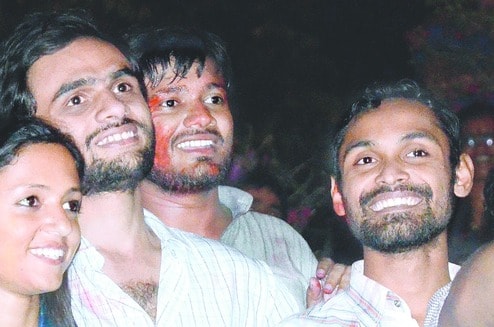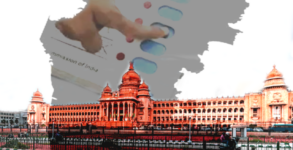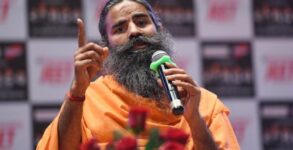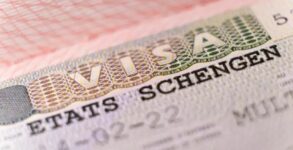Almost a year since Kanhaiya Kumar’s arrest on charges of sedition, the Delhi Police has reportedly not found any absolute evidence to pursue its charges against the former student of Jawaharlal Nehru University. Kanahaiya Kumar was jailed on February 9, 2016. He was charged with sedition, along with two other student activists and fellow JNU students, Umar Khalid and Anirban Bhattacharya. Though these students are still on bail, Umar and Anirban, might be charged with the alleged crime as per Times of India reports.
Looking at the charge-sheets of these students, there is evidence of over 40 video clips which have recorded instances of ‘anti-national’ slogans being raised at Jawaharlal Nehru University, Delhi, in February 2016.
In accordance with the narrative of the Delhi Police, there are solid proofs that Khalid waved ‘anti-India’ posters to voice his support to Afzal Guru. As per Indian Express reports, the videos capture around 140 protestors raising ‘anti-India slogans’ out of which nine are identified as “outsiders” likely from Kashmir. Their statements were recorded by the Police, the reports said.
However, it is to be noted that the charge-sheet clears that Kanhaiya Kumar was not a participant in the event. Although as the charges claim, despite being the JNUSU President at that moment, he allowed the students to slogan under his watch. It is left on the court to decide if they will be charging Kanhaiya of the alleged crime, reported TOI. The final charge-sheet, filed under Section 121 A (sedition) and criminal conspiracy will be submitted to the Delhi High Court after it is authorized by the police commissioner.
In his defense, Kanhaiya said that he was not the permitting authority to allow or disallow an event. “The administration – (proctor or vice chancellor) issues permission for an event and not the JNUSU president. I don’t have the authority to allow or disallow events on campus,” he said.

















